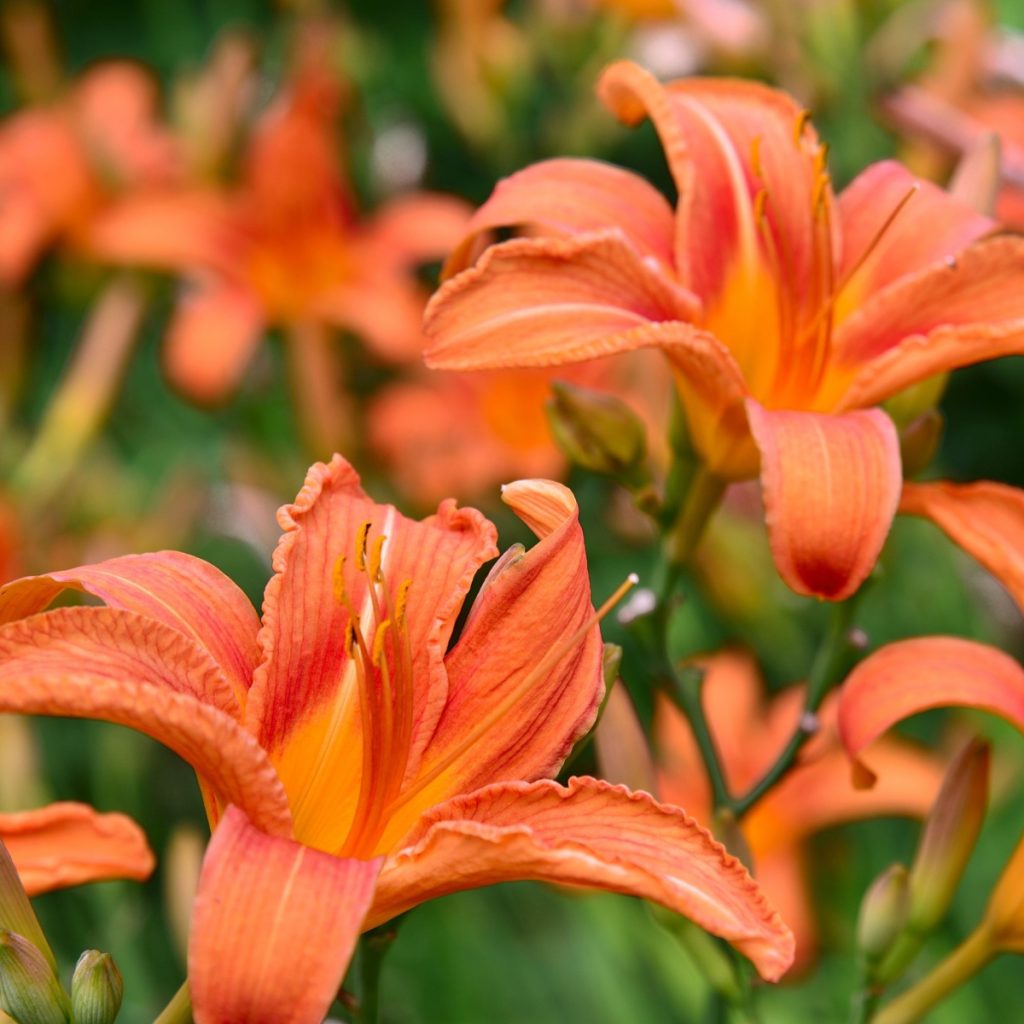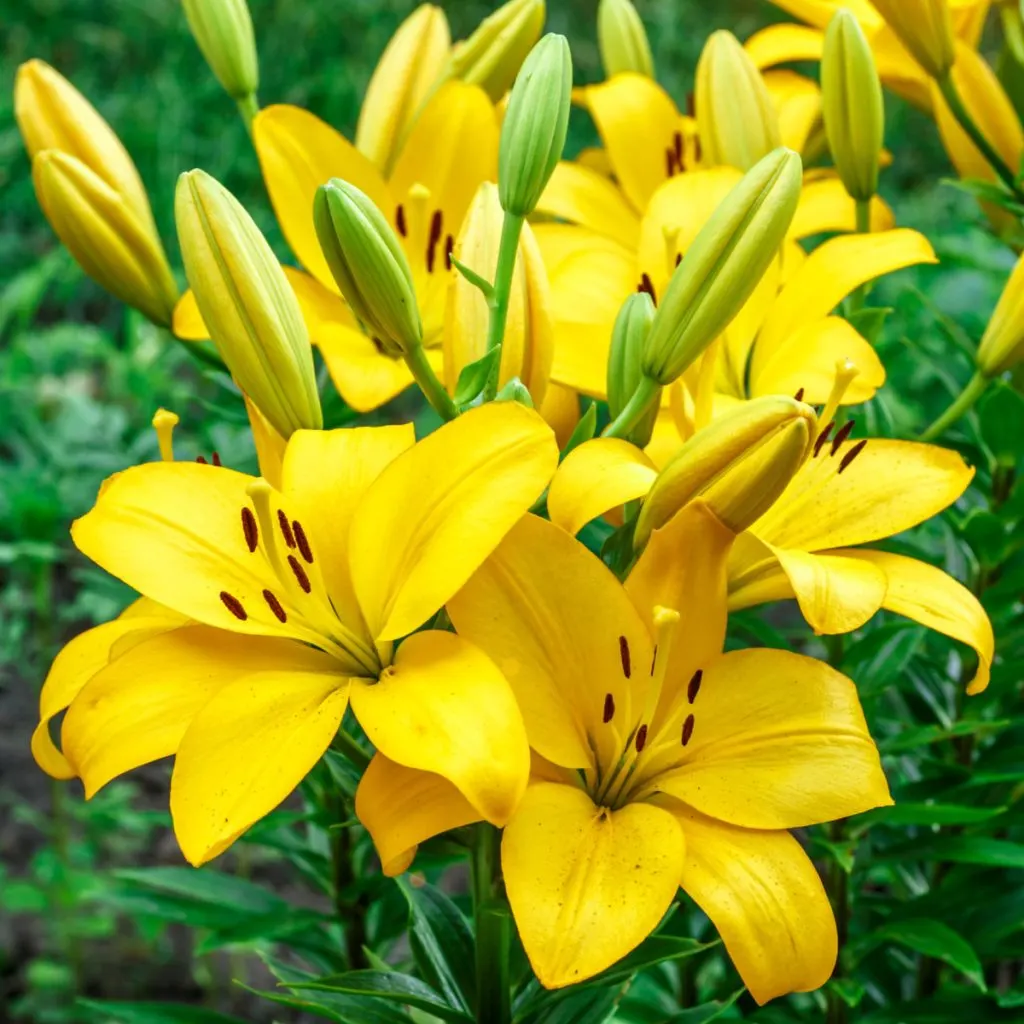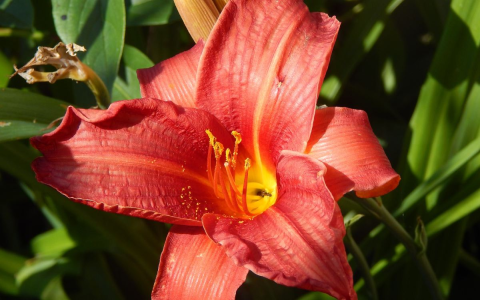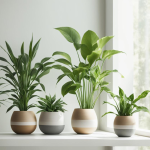Alright, let’s talk about fertilizing daylilies, you know, those pretty flowers that bloom in the summer. I ain’t no fancy gardener, but I’ve been growin’ these things for years, and I know a thing or two about keeping ’em happy.
First off, them daylilies, they’re hungry little fellers. They eat a lot, just like my grandkids after a long day of playin’ in the dirt. You gotta feed ’em good if you want ’em to show off their pretty colors. We gotta give ’em that fertilizer stuff, ya know?

Now, there’s all sorts of fertilizer out there. Some folks use that fancy slow-release stuff, some use liquid, and some just throw on some old cow poop. Me? I like the stuff that’s got lots of that nitrogen in it. Daylilies love that nitrogen, makes ’em grow big and strong, just like my prize-winning rooster, Big Red. You can tell the fertilizer’s got nitrogen if the numbers on the bag are big, like 10-10-10 or somethin’ like that.
- Springtime Feedin’: I always give my daylilies a good feedin’ in the spring, right before they start to bloom. That’s when they need it the most. I sprinkle a handful or two of that granular stuff around each plant, right at the bottom, where the roots are. Then, I water it real good. Not just a little sprinkle, but a good soakin’, like a couple of inches of rain. You don’t want that fertilizer sittin’ on the leaves, it’ll burn ’em like the sun on a hot summer day.
- Summer Snacks?: Some folks say you gotta feed ‘em again in the summer, but I ain’t so sure. If they’re lookin’ good, I just leave ‘em be. But if they’re lookin’ a little sad, maybe a little weak, I’ll give ‘em a little snack, just a small handful of fertilizer. Don’t want to overdo it, ya know?
- Fall Fixin’s: Then, in the late summer or early fall, I give ’em another good feedin’. This helps ’em get ready for the winter and come back strong next year. Just like puttin’ on a warm coat before the snow comes. Again, I use that nitrogen-rich stuff and water it in real good.
Now, some folks say you gotta deadhead them daylilies, that means cuttin’ off the old dead flowers. I do it sometimes, if I got the time. It makes ’em bloom more, I guess. But honestly, them daylilies, they’re pretty tough. They’ll bloom even if you don’t do nothin’ to ‘em. They ain’t like them fussy roses my neighbor, Mrs. Higgins, tries to grow. Them roses, they need more attention than a newborn baby.
So, to recap, fertilizing daylilies ain’t rocket science. Just give ‘em that nitrogen-rich stuff in the spring and fall, and maybe a little snack in the summer if they need it. Water it in good and don’t get it on the leaves. And if you got the time, deadhead ‘em. That’s it. Easy peasy, lemon squeezy, as my grandkids say.
Remember, healthy daylilies need essential nutrients, like nitrogen, phosphorus, and potassium. Nitrogen helps ’em grow tall and green, phosphorus helps with the roots and flowers, and potassium makes ’em strong. But that nitrogen, that’s the real important one for them daylilies. They love it!
And don’t go overboard with the fertilizer, ya hear? Too much of a good thing can be bad. Just like eatin’ too much pie, it’ll make ya sick. Follow the instructions on the bag, and you’ll be fine. And if you ain’t sure, just ask someone at the garden store. They’ll know what to do. They ain’t always right, but they usually know more than me about this fancy fertilizer stuff.
So, there you have it. My simple way of fertilizing daylilies. It ain’t fancy, but it works. And that’s all that matters, right? Now go on out there and get your hands dirty! And don’t forget to water them daylilies good!
One more thing, Daylilies are pretty low-maintenance. They’re tough plants, like weeds. But they’re pretty weeds, so that’s alright by me. You don’t have to fuss over them too much. Just give them some food and water and they’ll do their thing. Just remember, spring and fall are the most important times for feeding. That’s when they’ll really thank you for the fertilizer with a whole bunch of beautiful blooms.

Tags: [daylilies, fertilizer, nitrogen, gardening, spring, fall, blooms, plant care, low maintenance]




















